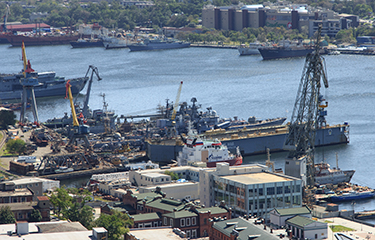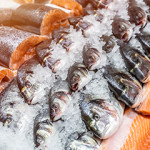Russia forced to reshape fleet-renovation project due to sanctions

A month and a half into Russia’s invasion of Ukraine, a clearer picture of the challenges the Russian seafood sector will be facing as a result of international sanctions is coming into focus.
Russia’s invasion of Ukraine immediately caused turmoil in global seafood markets, and the consequences on trade caused ripple effects that still haven’t subsided. Multiple rounds of economic sanctions imposed by the European Union, the U.K., and the U.S. have already impacted the seafood industry.
The sanctions are also having an impact on Russia’s fishing fleet, as the country’s maintainance and renewal efforts are impeded by a lack of equipment as suppliers are cut off from international markets.
Russia’s drive to renew its fleet started in 2014, after sanctions were imposed in response to its invasion and seizure of the Crimean Peninsula. In response to the sanctions, Russia banned seafood imports from countries that opposed the annexation, and initiated a program to renew its aging fishing fleet and boost its seafood production.
In 2016, the country launched its first investment-quota program, which awarded additional fishing quota to companies that built new vessels in Russian shipyards within a certain period of time.
However, even before most-recent round of sanctions, delays at Russian shipyards were putting the program at risk, the launch of new vessels delayed by shipyards lacking the necessary experience or materials. Russian shipyards have relatively little experience in manufacturing fishing vessels, and the country does not have the engineering and production facilities capable of manufacturing sophisticated fishing vessel equipment.
As a result, nearly 70 percent of components of Russian fishing boats are manufactured abroad. As recently as January 2022, Russian Fishery Company placed an order with Aalborg, Denmark-based seafood processing equipment manufacturer Carsoe for processing equipment to be installed onboard four of its new ships at a price of DKK 500 million (USD 73 million, EUR 67.2 million)
Soon after Russia invaded Ukraine, United Shipbuilding Corporation CEO Alexey Rakhmanov, warned of probable delays in fishing-vessel construction due to a lack of critical components, such as engines, trawl-pulling mechanisms, and fish-processing and -freezing equipment. Since then, the United Shipbuilding Corporation has been sanctioned by the U.S. Department of the Treasury, along with 28 subsidiaries. Rakhmanov is listed as one of the company's sanctioned board members.
“Neither U.S.S.R. nor Russia has manufactured such things as propulsive systems, propellers, etcetera. We buy them abroad, so they are the biggest concern,” Primorye Fisheries Association President Georgiy Martynov said in an interview with the newspaper Rossiyskaya.
Sergey Nesvetov, executive director of the North West Fishery Consortium, told PortNews his company has eight quota-investment contracts, with two ships already delivered and the other six under construction. The company has not yet abandoned its plan to build the new ships, but the company is reviewing the project as the cost of new equipment soars, Nesvetov said.
On 11 March, the Russian Federal Agency for Fisheries established a special working group to tackle the problem. Then, on 7 April, Russian Federal Agency for Fisheries Head Ilya Shestakov said during a meeting with Russian Vice Premier Minister Viktoria Abramchenko the agency has monitored and analyzed all projects under the investment-quota umbrella and found 7 percent of new vessels being built will need to be redesigned to accomodate Russian-made equipment.
Under the investment-quota agreement, if fishing companies don't launch their new vessels within a certain timeframe, they risked a breach of contract – resulting in fines and a delay in receiving their new quotas. However, Shestakov said the government is considering a postponement of ship-delivery times, with contracts changed to give companies an additional two years to complete their construction process.
But in a sign of the additional complications faced by Russia's seafood industry, Shestakov himself was recently sanctioned by the U.S. Department of the Treasury for his role as a board member of the United Shipbuilding Corporation.
Photo courtesy of Urri/Shutterstock






Share